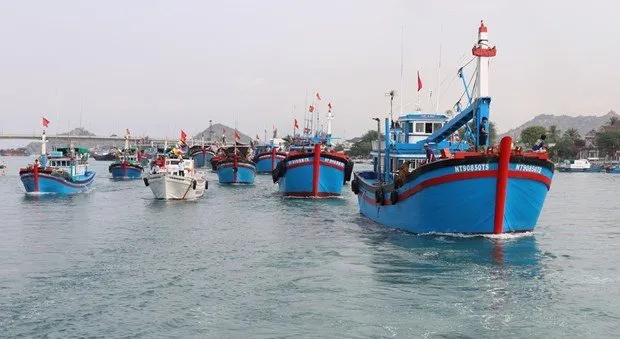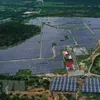Vietnam to complete fishery management institutions in Q4

The information was unveiled by DoF Deputy General Director Nguyen Quang Hung on the sidelines of the Ministry of Agriculture and Rural Develop’s online conference with coastal localities on October 22.
Hung said that the EC assessed that Vietnam is on the right track and seeing positive results in the fight against IUU fishing.
According to the official, the EC is likely not to impose a "red card" but will maintain its "yellow card" warning until there is no Vietnamese fishing vessel violating foreign waters and overcome the EC’s four groups of recommendations.
The Directorate of Fisheries said that localities have actively installed vessel monitoring devices on fishing vessels and marked them in accordance with the provisions of the Fisheries Law.
Up to now, 27,716 vessels, or 90.5% of the targeted boats, have installed vessel monitoring systems (VMS), and 90.53% of fishing vessels have been marked. Quang Ninh, Quang Tri and Tra Vinh provinces have less than 75% of their fishing vessels installing these devices.
Authorised forces from central to local levels have implemented many measures to prevent and stop Vietnamese fishing vessels from violating foreign waters. The situation tends to decrease gradually, but is still developing complicatedly. Ca Mau, Binh Dinh, Ba Ria - Vung Tau, Ben Tre, and Kien Giang provinces have still seen fishing vessels violating the regulations.
Administrative sanctions against violations related to IUU fishing have led to positive changes in some localities. However, the sanctions are not really strict and inconsistent among localities, and the rate of penalties imposed on violations in foreign waters are still low compared to the reality.





